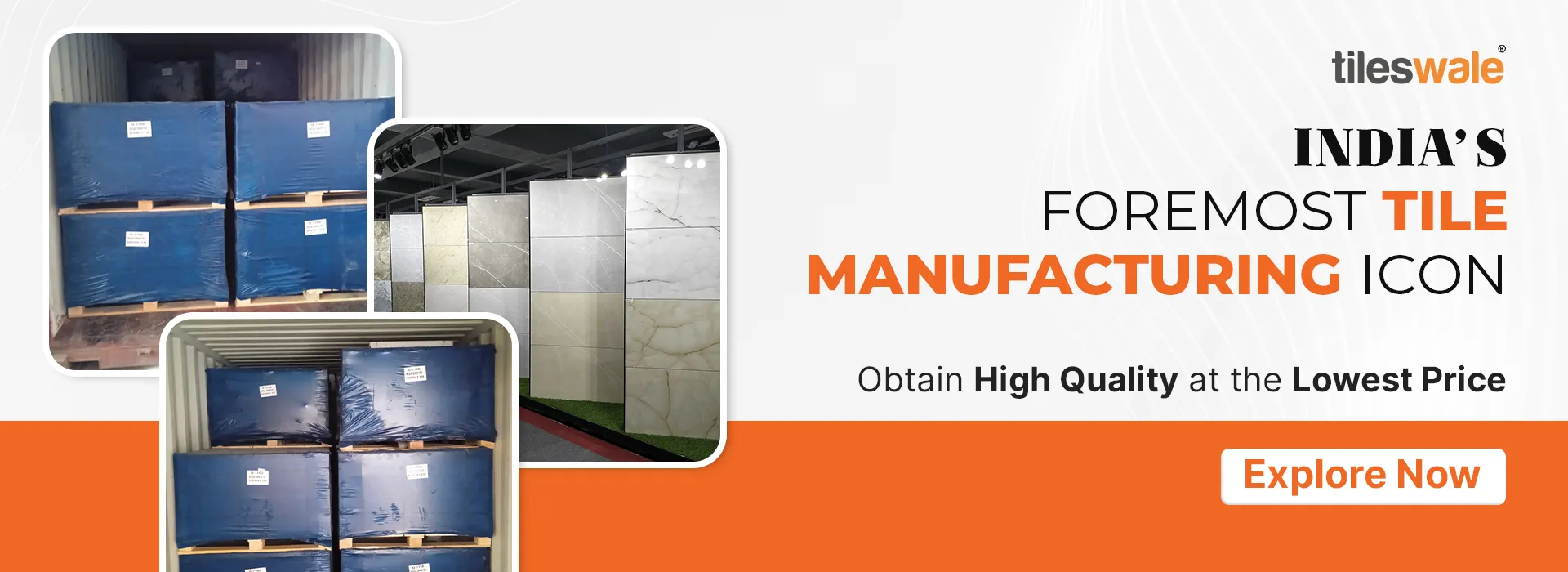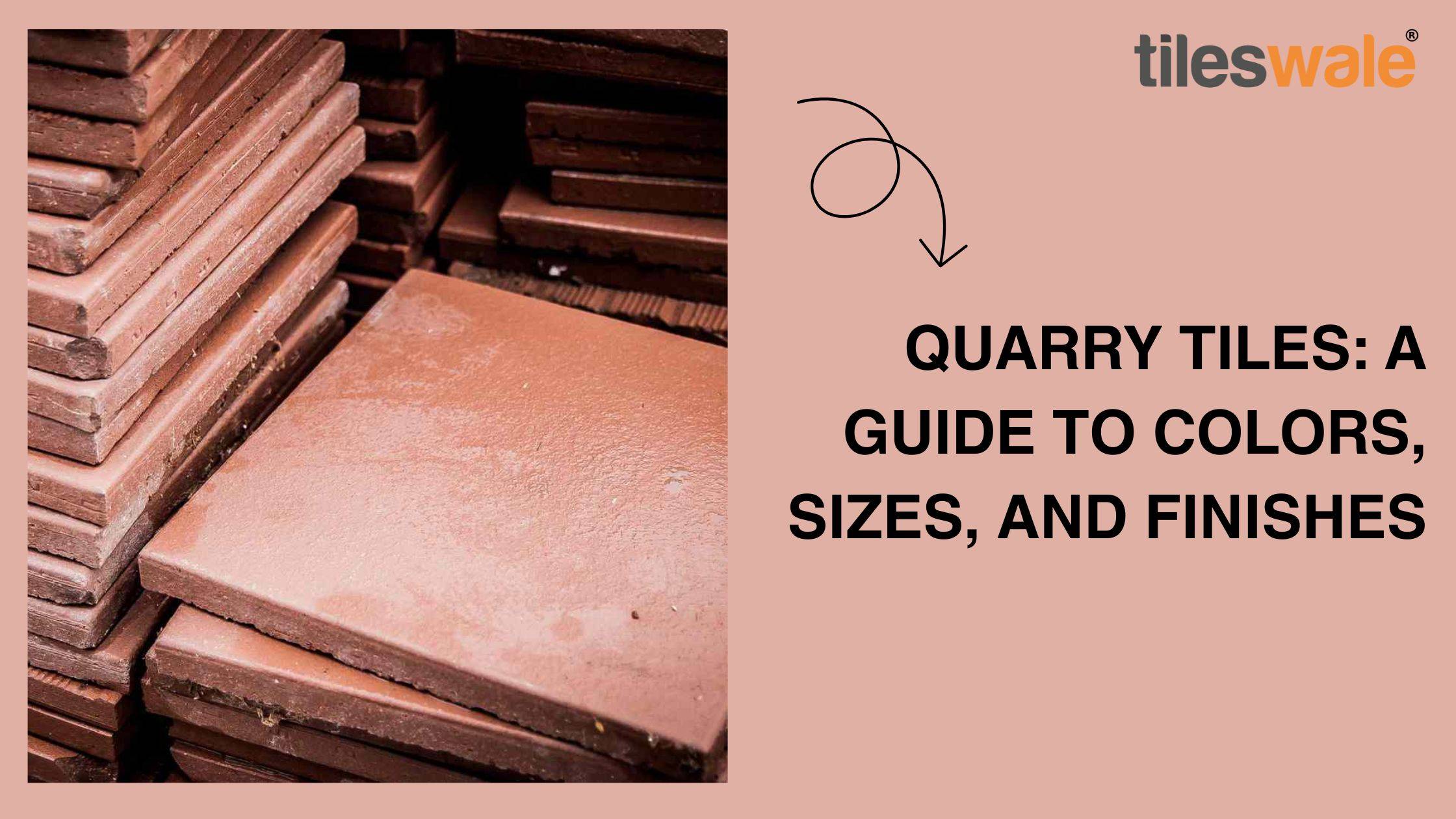
World's First Ceramic-Tile & Sanitaryware Live Marketplace. Get it on Google Play
Get it on App Store
World's First Ceramic-Tile & Sanitaryware Live Marketplace. Get it on Google Play
Get it on App Store
By Tileswale
Quarry tiles are one of the oldest flooring options used for centuries in residential and commercial applications. Known to be very durable with a good slip resistance and earthy appeal, the quarry tiles have been a popular choice for various homeowners and designers. The quarry tile is made of natural clay and comes in a variety of colors, sizes, and finishes to fit any design. The wide color options, size variations, and finishes available play a vital role in these tiles, but understanding all these aspects is essential for choosing the right tile for your space.
Quarry tiles are unglazed ceramics that are made of natural clay. They are fired at very high temperatures that make them less vulnerable to wear and tear. Unlike other ceramic tiles that have a glaze finish, quarry tiles will have a more rustic and natural look and feel, thus making them ideal for any area in the home that calls for a more subdued look and feel. Indeed, these tiles have been in use since ages long gone by, not only in history buildings but also in other modern homes owing to durability and a timelessness appeal.
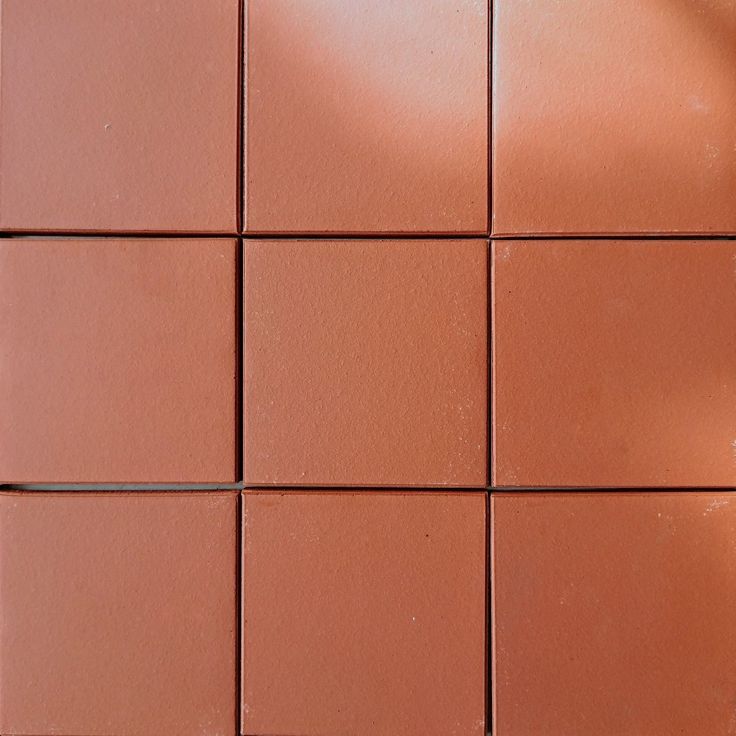
Quarry tiles are very popular because of their high tolerance for dense tract-ing exposed to heavy foot traffic, moisture, and temperature changes. Normally installed in kitchens, bathrooms, entryways, and sometimes outdoors, they are particularly wanted in restaurants in commercial venues.
Quarry tiles are natural raw materials, which are mainly clay and shale. The type of clay used in quarry tiles is usually mineral-rich, thus becoming the basis for that particular coloring and texture on the tile. The production process for quarry tiles starts with extracting these natural resources that are later grounded into fine powder, mixed with water, producing a pliable clay body.
The clay body is molded into tiles, usually by either extrusion or pressing and then fired at over 2,000 degrees Fahrenheit. That firing not only hardens the tiles but also endows them with strength and durability. The natural minerals present in the clay give quarry tiles their characteristic earthy tones-from deep reds to warm browns, tans, and grays.
One of the most appealing qualities of quarry tiles is that they come in natural tones with earthy colors. Their standard colors go from shades of red, brown, and tan to suit any number of design styles to effortlessly blend. The minerals this tile contains cause slight color variations among each batch, giving it a decent amount of rustic charm.
The popular ones are red quarry tiles, which have popularly been associated with traditional and rustic designs. Deep warm red color is a result of the high temperature firing process of iron-rich clay. It can be used either indoors or outdoors.
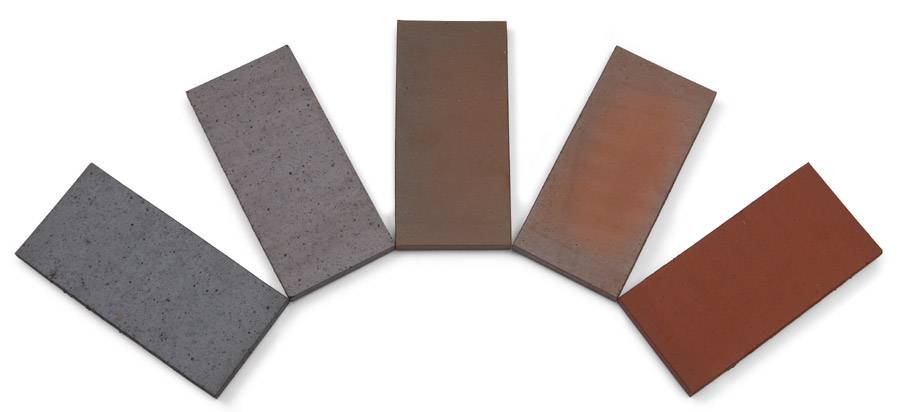
Brown and tan quarry tiles would be a more neutral option that can complement any color scheme. Such shades are ideal for those spaces which require a subtle, earthy backdrop. Natural variations in the clay can range from light beige to rich chocolate brown, giving a tonal depth and character to the flooring.
Gray and black quarry tiles have a more modern look or an industrial look. Clay or a mineral like carbon in it can darken and thus, during the firing process becomes darker. Gray and black tiles are thus great options for modern spaces, presenting a sleek and stylish appearance while still keeping them quite durable.
Quarry tiles are mostly found in natural earth tones, although special projects can be done in custom colors. Custom options allow designers more room to get creative, as designers may have already established specific color schemes or concepts for their design. Of course, one must remember that custom colours often have limited availability and cost.
Quarry tiles are available in a number of standard sizes that work for most applications. Probably the most common sizes are 6x6 inches, 8x8 inches, and the accepted thickness is 1/2 to 3/4 inch. These sizes are the best sizes which work out for most residential and commercial projects.
Large format quarry tiles, those larger than 12x12 inches, like 16 or 24 inches, have become favored in design recently. The theory is that these larger tiles visually create a smoother plane as there are fewer grout lines and they place less visual burden on the space. They come nicely into play in big rooms like an open-plan kitchen space or sprawling outdoor patio areas, where fewer grout lines give the area a more seamless feel. Large format also helps to make a room appear larger and more cohesive.
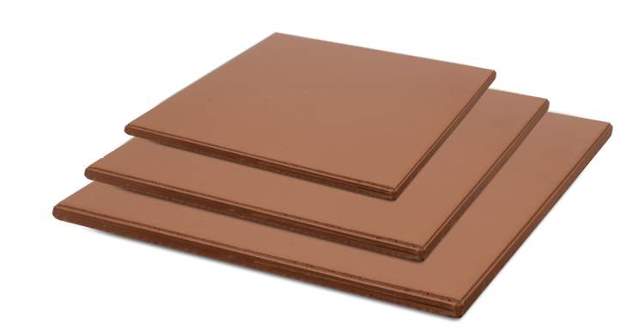
Small format quarry tiles, such as 4 by 4 inch, are perfect for designs or aesthetic uses in accent tiles. Smaller tiles are particularly popular in kitchen backsplashes, bathroom walls, or decorative borders. They provide greater design flexibility and can be used to create patterns or mosaic effects.
Alternatively, quarry tiles can be requested to be cut for custom sizes. Customers can have these tiles ordered so that they meet whatever requirements there are or to match tile work existing in a structure. Custom sizing, however would require longer lead times and added costs. Proper planning is thus required on the part of the purchaser.
The thicker the quarry tile, the more durable it is and how far it will be applied. The heavier tiles at 3/4-inch are best suited for large, busy areas such as commercial kitchen entrances or outside walkways. The lighter tiles are better for residential applications because the load-bearing demand is lower, at around 1/2-inch.
Quarry tiles typically have a natural, unglazed finish, which gives them a rustic and authentic appearance. This finish is slip-resistant, making it ideal for areas that may get wet, such as kitchens, bathrooms, and outdoor patios. The natural finish also makes the tiles less prone to showing dirt and stains, contributing to easier maintenance.
For areas where slip resistance is a top priority, such as outdoor walkways or pool decks, textured quarry tiles are a popular choice. The textured surface provides extra grip, reducing the risk of slips and falls. These tiles are particularly useful in commercial settings, where safety standards are stringent.
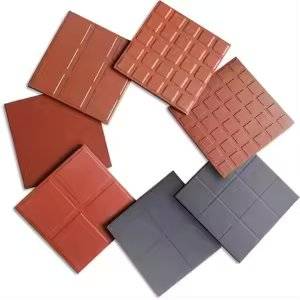
Although less common, polished quarry tiles are available for those who prefer a smoother, shinier surface. Polished tiles undergo additional grinding and polishing processes to achieve a glossy finish. While this finish is aesthetically pleasing and easier to clean, it can be more slippery when wet, so it's best suited for areas where moisture is not a concern.
Handmade and rustic finishes are available for those seeking a more unique and artisanal look. These tiles often have irregular edges, uneven surfaces, and intentional imperfections that add character and charm to a space. Rustic finishes are perfect for creating a vintage or farmhouse-style aesthetic.
One of the primary reasons quarry tiles are so popular is their exceptional durability. These tiles are designed to withstand heavy use, making them ideal for high-traffic areas. The high firing temperatures used in their production ensure that quarry tiles are resistant to scratches, chips, and wear.
In addition to their physical durability, quarry tiles are also resistant to water and stains, especially when properly sealed. This makes them suitable for both indoor and outdoor use, even in areas exposed to harsh weather conditions. With proper care and maintenance, quarry tiles can last for decades, making them a long-term investment in any property.
Proper surface preparation is crucial when installing quarry tiles. The subfloor must be clean, dry, and level to ensure the tiles adhere correctly. In some cases, a layer of cement backer board may be required to provide a stable base, especially in areas prone to moisture.
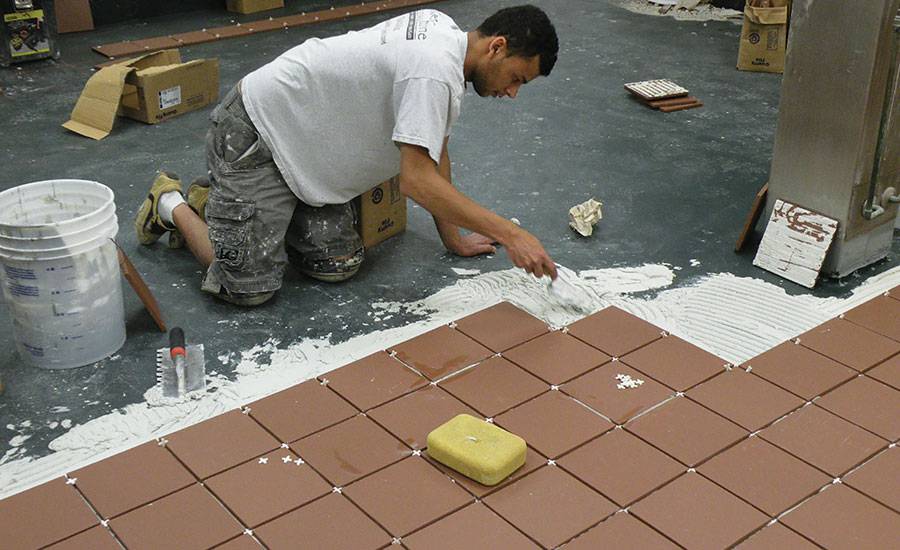
Grouting and sealing are essential steps in the installation process. Quarry tiles are typically installed with wide grout lines, which should be filled with a high-quality, stain-resistant grout. Once the tiles and grout are in place, sealing the surface is recommended to protect the tiles from stains and moisture. Sealants help enhance the tiles' longevity, especially in areas exposed to water or heavy foot traffic.
Some common mistakes to avoid when installing quarry tiles include improper surface preparation, using the wrong type of adhesive, and failing to seal the tiles after installation. These errors can lead to issues such as tiles lifting, grout cracking, and stains penetrating the tiles. To ensure a successful installation, it's often best to hire a professional with experience working with quarry tiles.
Maintaining quarry tiles is relatively straightforward, making them a practical choice for busy spaces. Regular sweeping or vacuuming will help remove dirt and debris that could scratch the surface. For routine cleaning, a mild detergent mixed with warm water is usually sufficient. Avoid using harsh chemicals or abrasive cleaners, as these can damage the tiles' surface.
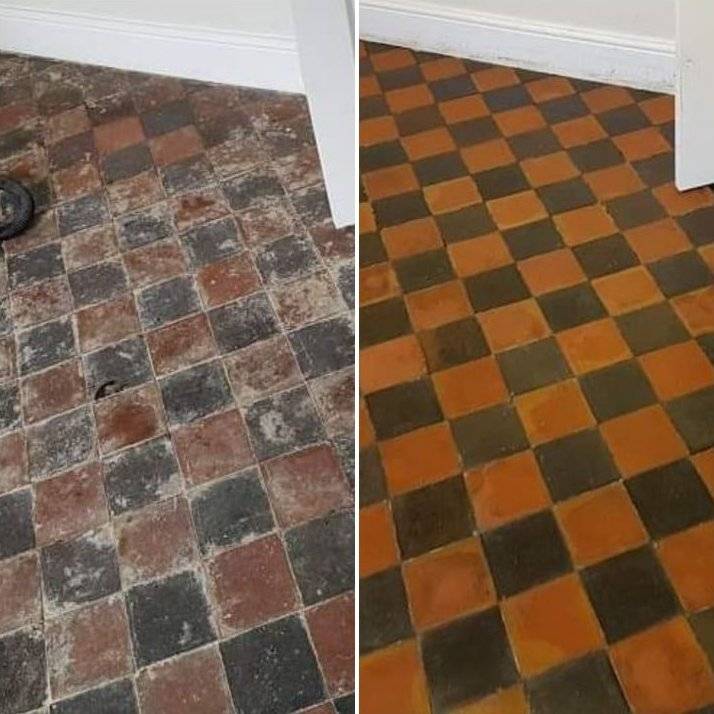
In the event of spills, it’s important to clean them up promptly to prevent staining. Quarry tiles that have been properly sealed are less prone to stains, but it’s still advisable to take precautions, especially with liquids like oil or wine.
The cost of quarry tiles can vary depending on the color, size, finish, and region. Typically, quarry tiles are more affordable than natural stone tiles but may be more expensive than standard ceramic tiles. The cost of installation should also be considered, as quarry tiles are often thicker and heavier, requiring more specialized installation techniques.
DIY installation can save money, but it’s important to be aware of the challenges involved. Professional installation, while more costly, ensures that the tiles are installed correctly and can help prevent future issues.
Several factors come into play when one compares other types of flooring to quarry tiles. This is because quarry tiles are marked with a result that is robust, slip-resistant, and naturally beautiful, and these make them very hard to substitute. Quarry tiles are typically thicker than most ceramic tiles and are more robust, since they are designed to be used on heavy foot traffic areas.
Porcelain tiles, although more durable, tend to be a bit more refined-looking and come in a much wider variety of colors and patterns. Natural stone tiles-slate or travertine, for example-promise a similar earthy feel, but they tend to be pricier and more of a maintenance nightmare.
In residential settings, quarry tiles are commonly used in kitchens, bathrooms, entryways, and outdoor spaces like patios and walkways. Their durability and slip resistance make them an excellent choice for areas that see a lot of use or are exposed to moisture. The natural colors of quarry tiles blend well with a variety of design styles, from rustic to modern.
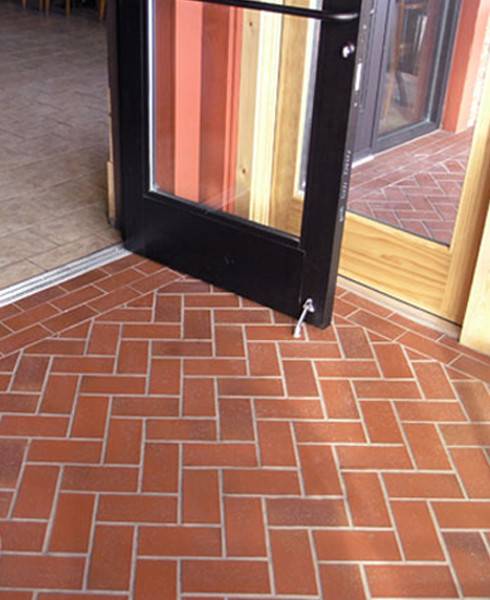
Quarry tiles are also used in large amounts in public areas like restaurants, retail premises, and public buildings where high pedestrian traffic and the requirement of stain resistance with minimal compromise to both the issues of cleanliness and durability exist. In commercial kitchens, quarry tile is highly suitable due to its slip resistance and ease of cleaning.
Though quarry tiles are quite an old favorite, they still evolve with the changing design trends. There have been recent demands for larger format tiles and quarry tiles in modern designs. Quarry tiles also carry its natural, earthy tones in minimal and industrial settings because of their rustic charm's ability to add a whiff of warmth and texture to a space.
Some other trends are quarry tiles in outdoor living spaces; durability and resistance to the elements make them a practical choice for use there. Increased demand to place outdoor kitchens, patios, and areas for entertaining that can seamlessly blend into indoor spaces and quarry tiles are often used for these applications.
Yes, quarry tiles are highly durable and weather-resistant, making them suitable for outdoor applications such as patios, walkways, and pool surrounds.
While quarry tiles are less porous than some other tiles, sealing is recommended to protect them from stains and moisture, especially in high-traffic or wet areas.
Absolutely. Quarry tiles are versatile and can complement modern, industrial, and minimalist designs, particularly in neutral tones like gray and black.
Regular sweeping or vacuuming and mopping with a mild detergent and warm water are usually sufficient. Avoid harsh chemicals or abrasive cleaners.
Quarry tiles, since its first use, have proven to be one of the most unfailing and versatile floorings in existence. Coming in their natural colors, various sizes, and different finishes, they all could be applied to a wide range of applications-from rustic kitchens to contemporary commercial spaces. Quarry tiles are your best bets when you need a floor that comfortably survives under much foot traffic or adds earthy elegance to a home. With proper installation and care, you can have quarry tiles delivering decades of beauty and functionality.
Submit your inquiries, we will see the rest
size:
Quantity:

+ Requirements

We have received your Inquiry. We will soon connect you with relevent Sellers via tileswale App. download now!!

